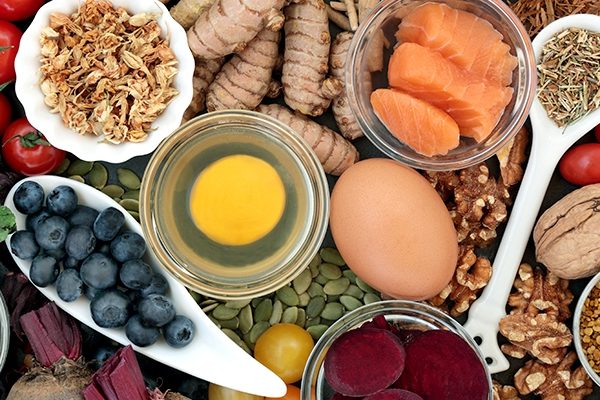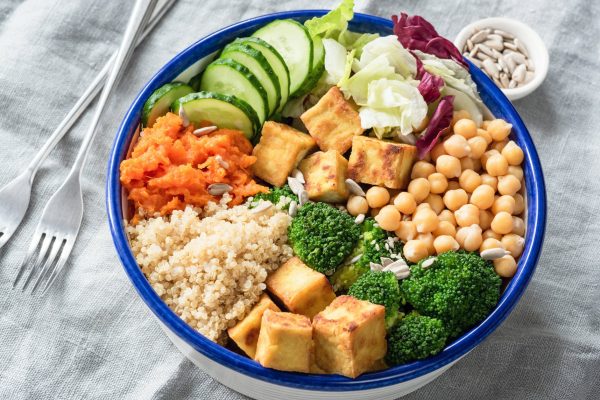You must be well acquainted with sweet corn, as you can easily find them in different forms of salad and dishes. Generally, we consume sweet corn either in roasted or boiled form. You may not believe but sweet corn is actually an entire grain – a form of grass that contains lots of starch. This is also the reason why we call it a starchy vegetable. It has a heavy amount of carbohydrates present in it – just like all kinds of starch. Often you may hear that ground corn is denoted as a grain, while whole corn is considered a vegetable.
You can have access to sweet corn in the summer season when the cultivation is at its peak. Most of the times, you might have sweet corn as a staple food during outdoor cooking or barbeque sessions. Although sweet corn has a lot of carbohydrates present, it is still extremely beneficial to your health. Other than carbohydrates, you will find vitamin B and C, carotenoids (like lutein and zeaxanthin), magnesium and other macro and micronutrients.
If you are worried about gaining weight by consuming sweet corn, then you are wrong. Corn contains a negligible amount of fat. You will consume not more than 1 gram of fat from every serving of the corn excluding the toppings. Consumption of corn in any form can provide you with lots of fiber content. You get 3 grams of fiber per half cup of corn servings.
Advantages of consuming sweet corn
You can easily include sweet corn in your meal or diet, by planning out the consumption portions per day. If you take one little ear of corn, you will get 19 grams of carbs and 85 calories. Then what if you take a large ear of corn? For the larger one, you get almost the double amount of calories and carbohydrate.
If you are eating larger or medium sized corn ears, portion your size according to the servings you take per day. For eating corn kernels, limit your servings to half a cup every day to keep a check on your calorie and carbohydrate uptake. Remember not to take any starchy vegetable alongside sweet corn in the meals. If you are not consuming any starch in your diet, you can consider one cup of corn kernels instead of half a cup.
As corn is very rich in fiber content, you get to gain 3 grams of fiber per serving of half a cup of corn kernels. If your diet has high fiber content, it will help regulate your blood glucose level and reduce cholesterol level. Taking suggestive portions of corn every day may also aid you in weight loss.
You can learn about the sources of corn and their importance as listed below:
- Vitamin C – helps in cell repair, boosts your immunity and works as an anti-aging agent.
- B vitamins – helps in regulating your energy metabolism rates.
- Magnesium – necessary for your muscle contraction and flexibility, as well as effective neuronal conduction.
- Carotenoids (lutein and zeaxanthin) – Improves your eye health and also have antioxidant properties.
Frequently asked questions
- Is high fructose corn syrup beneficial?
High fructose corn syrup is extracted from normal corn syrup (especially the corn kernels). After that, you treat them with an enzyme that is viscous and thick in nature. If high fructose corn syrup is a derivative of corn syrup, then what makes it different? You will find glucose content in corn syrup but in high fructose corn syrup, glucose is enzymatically converted to fructose. This is why you will find fructose syrup much sweeter than glucose contained corn syrup.
When you consume any forms of corn syrup – you should sparingly add them to your meal. Since both the syrups have a high content of sugar, you need to compromise on the amount you consume. Beware to use high fructose corn syrup or normal corn syrup if you have any of the below mentioned medical conditions:
- Type 2 diabetes
- Pre-diabetes
- Heart diseases
- Obesity
- Metabolic syndrome
- Insulin resistance
- Cancer
The reason why you must restrict consuming high fructose corn syrup is due to the high fructose content. Fructose is a monosaccharide, which metabolizes in your body in a different way than disaccharides, oligosaccharides or polysaccharides. Your liver is the place where fructose metabolism happens. When you add excess fructose in your diet, your liver becomes saturated with the monosaccharide and thus fails to metabolize all fructose.
As a result, the excess fructose is converted by your liver to fat, and that is when you have a fatty liver. Before including high fructose corn syrup in your diet, check on your predisposed medical conditions to critically plan out servings.
Is corn most of the times available as GMO?
When it comes to varieties of corn, you can notice 142 different types of corn that are genetically modified. If you are looking for non-genetically modified corn in the market, go for the fresh corn. Still, if you are uncertain about whether or not fresh corn is genetically modified, go for the very safe organic corn. You can easily buy frozen corn or organic variety if you wish to have non-genetically modified products for your diet.
Healthy ways of cooking corn
You can go for shucked corn, whose husks and skins have been removed. Try boiling or grilling shucked corn. You can even microwave them or have them steamed before eating. If you want to grill or roast corn, it is preferred that you leave the husks on. In this way, you can impart some crispness to your corn dish on roasting or barbequing. You can have grilled corn as they are crunchy, sweet and extremely satisfying as a dish.
The best thing about corn is that you do not have to add sugar to dishes. Being naturally sweet, you need no other flavoring agents to add to corn. However, you can always go for spicy or saucy toppings for preparing various dishes of corn, involving butter, herbs, chili powder, basil, jalapeno, paprika, cilantro, thyme or garlic.











